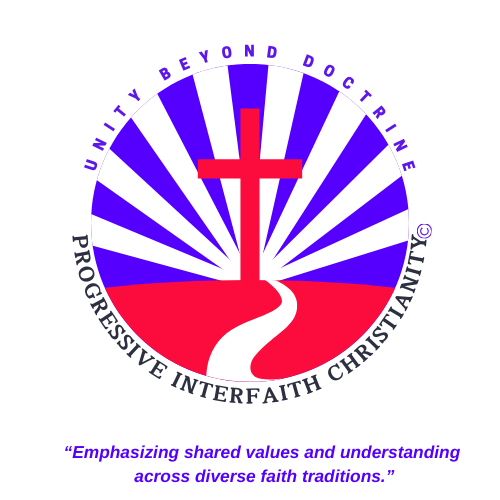
Progressive Interfaith Christianity:
Embrace the openness and inclusivity of liberal Christianity. Engage in respectful conversations with adherents of other religions.
Seek common ground, shared values, and collaborative efforts. Address social justice issues together.
Frequently Asked Questions
1. Why is interfaith engagement important in today's society?
Interfaith engagement holds immense significance in today’s society for several compelling reasons:
1. Promoting Tolerance and Understanding:
- In a world marked by diversity, interfaith engagement encourages people to move beyond mere tolerance. It fosters genuine understanding, empathy, and respect for different religious beliefs and practices.
- By learning about other faiths, individuals can dispel stereo types, reduce prejudice, and build bridges across cultural divides.
2. Countering Religious Extremism and Intolerance:
- Interfaith dialogue provides a powerful antidote to religious extremism.
- When people from diverse backgrounds engage in respectful conversations, they can challenge extremist narratives and promote peace.
3. Addressing Global Challenges Collaboratively:
- Many global issues—such as poverty, climate change, and social injustice—require collective efforts. Interfaith initiatives bring together people with shared values to work toward common goals.
- Collaboration across faith lines amplifies our impact and creates a sense of shared responsibility.
4. Building Social Cohesion and Harmony:
- Interfaith engagement strengthens social fabric by fostering connections among neighbors, coworkers, and community members. It promotes a sense of belonging and shared purpose.
- When people of different faiths collaborate, they contribute to a more harmonious and resilient society.
- Learning about other religions enriches our understanding of human history, culture, and spirituality. It equips us to engage in informed conversations and appreciate the beauty of diverse traditions.
- Religious literacy is essential for navigating an interconnected world.
- Interfaith events provide safe environments where people can ask questions, express doubts, and learn from one another. These spaces encourage curiosity and openness.
- They allow individuals to explore their own faith more deeply while appreciating the richness of others.’
- Interfaith service projects—whether feeding the hungry, caring for the environment, or assisting refugees—demonstrate that compassion transcends religious boundaries.
- Such acts of service embody the core teachings of various faiths.
In summary, interfaith engagement promotes understanding, counters extremism, and contributes to a more compassionate and interconnected world. It reminds us that despite our diverse paths, we share a common humanity.
2. How can liberal Christianity contribute to fostering inclusivity in interfaith initiatives?
- Interfaith initiatives aim to bring people from different religious backgrounds together to address pressing global challenges.
These initiatives can take various forms, ranging from shared meals in local places of worship to high-level acts of international diplomacy. Here are some key points about interfaith initiatives:
- Purpose: The primary goal of interfaith initiatives is to foster understanding, dialogue, and collaboration among individuals of diverse faith traditions. By promoting mutual respect and cooperation, these efforts seek to address common issues faced by humanity.
- Global Reach: Interfaith movements have gained prominence globally. Events like the Parliament of the World’s Religions (held in Chicago in 1893) and incidents such as 9/11 have thrust interfaith onto the global stage. Religious conflicts, extremism, and prejudice have motivated many to seek solutions through interfaith practices.
Examples of Initiatives:
- Local Engagement: Initiatives include shared meals, interfaith dialogues, and joint community service projects within neighborhoods.
- National Programs: Countries like the UK have programs such as Near Neighbours, which brings religiously and ethnically diverse communities together.
- International Diplomacy: Efforts like the G20’s Interfaith Forum aim to address global challenges through interfaith collaboration.
- Community Building: Local groups engage in arts, sports, and scripture studies across religious divides.
Challenges and Criticisms:
- While interfaith initiatives have commendable intentions, their effectiveness is often difficult to measure. Critics argue that some efforts may be mere virtue signaling, while others find the goals (such as world peace and reconciliation) lofty and vague.
- Evaluating the impact of interfaith projects remains a challenge, as measurement and evaluation are rarely conducted.
- In summary, interfaith initiatives provide spaces for dialogue, bridge-building, and joint action across religious boundaries, aiming to create a more harmonious and understanding world.
3. What are some practical tips for organizing successful interfaith events and service projects?
Organizing successful interfaith events and service projects requires thoughtful planning and sensitivity. Here are some practical tips to ensure a meaningful and impactful experience:
Purpose and Vision:
- Clearly define the purpose of the event or project.
- Is it to foster understanding, build relationships, or address a specific issue?
- Having a clear vision will guide your planning.
- Assemble a diverse planning team that represents different faith traditions.
- Their insights will enrich the event and ensure inclusivity.
- Select a neutral location that doesn’t favor any particular religion.
- Community centers, parks, or public spaces work well.
- Include educational sessions on different faiths.
- Invite speakers or organize panels to share insights, rituals, and practices.
- Consider workshops on interfaith dialogue, conflict resolution, and cultural competency.
Shared Rituals and Practices:
Incorporate element.
- Interfaith Prayer or Meditation: Create a space for joint reflection.
- Shared Meals: Food brings people together.
- Organize a potluck with dishes from different cultures.
Active Listening and Dialogue:
- Encourage open conversations. Provide prompts or questions to facilitate dialogue.
- Use active listening techniques to understand others’ perspectives.
- Create opportunities for attendees to interact informally. Icebreakers, games, or small group discussions can help build connections.
- Set ground rules for respectful behavior. Emphasize empathy, patience, and understanding.
- Address any potential conflicts promptly and constructively.
- Share contact information and invite participants to future gatherings.
- Collaborate on joint projects or initiatives that benefit the community.
- After the event, gather feedback from participants.
- What worked well? What could be improved?
- Use insights to enhance future interfaith initiatives.
Remember, successful interfaith events go beyond tolerance; they aim for genuine understanding, appreciation, and cooperation among diverse communities.
4. How can individuals overcome barriers and misunderstandings in interfaith dialogues?
Overcoming barriers and misunderstandings in interfaith dialogues requires intentional effort and a commitment to mutual understanding. Here are some practical strategies:
Educate Yourself:
- Learn about other religions: Attend religious events, read sacred texts, and converse with individuals from different faiths. This helps dispel misconceptions and fosters empathy.
Avoid Stereo types and Prejudice:
- Challenge assumptions: Refrain from making stereotypes about people based on their religious backgrounds. Approach each person as an individual rather than assuming common traits.
Use Inclusive Language:
- Be mindful of language: Choose words that promote understanding and avoid offensive language. Inclusive language helps prevent misunderstandings.
Focus on Commonalities:
- Identify shared values: Emphasize common ground, such as compassion, respect, love, hope, and peace. Recognize that these values exist across faith traditions.
Be Open-Minded and Willing to Learn:
- Listen actively: Be receptive to others’ perspectives. Seek to understand rather than convince or convert.
- Acknowledge differences: Accept that disagreements exist and aim for respectful dialogue without compromising personal beliefs.
Remember, interfaith dialogue is an opportunity for growth, bridge-building, and building stronger communities. By approaching it with openness and respect, we can overcome barriers and promote understanding across religious lines.

FARMED WITH LOVE
When we started to farm, it was just the two of us. Now we’ve got kids of our own and 10 employees who’ve become our extended family. We’re all here because we absolutely love what we do.

THE RIGHT WAY
There’s a lot of buzz about sustainable farming, and we couldn’t be happier. We’ve seen how much richer the soil is when we control weeds, pests and disease without toxic chemicals. We’re pretty sure it makes our harvest taste better, too.

ALL ORGANIC
We’ve farmed organic since the day we planted our first heirloom tomatoes over 30 years ago. It’s good for the land, and it’s great for you.



